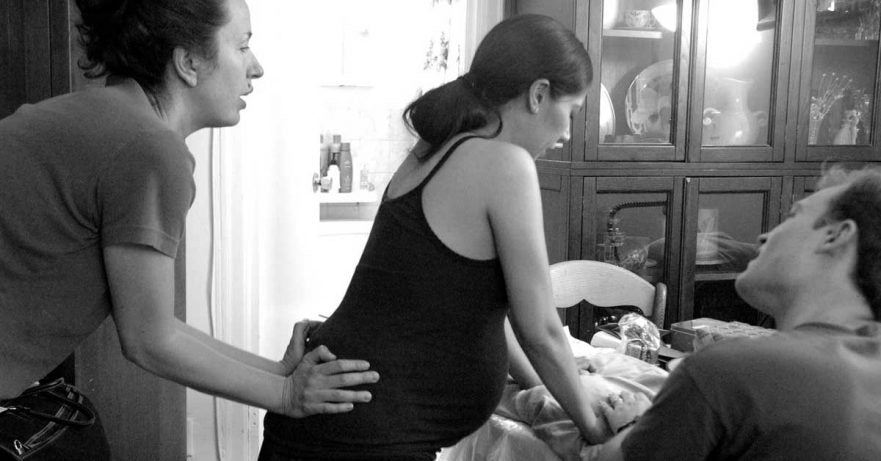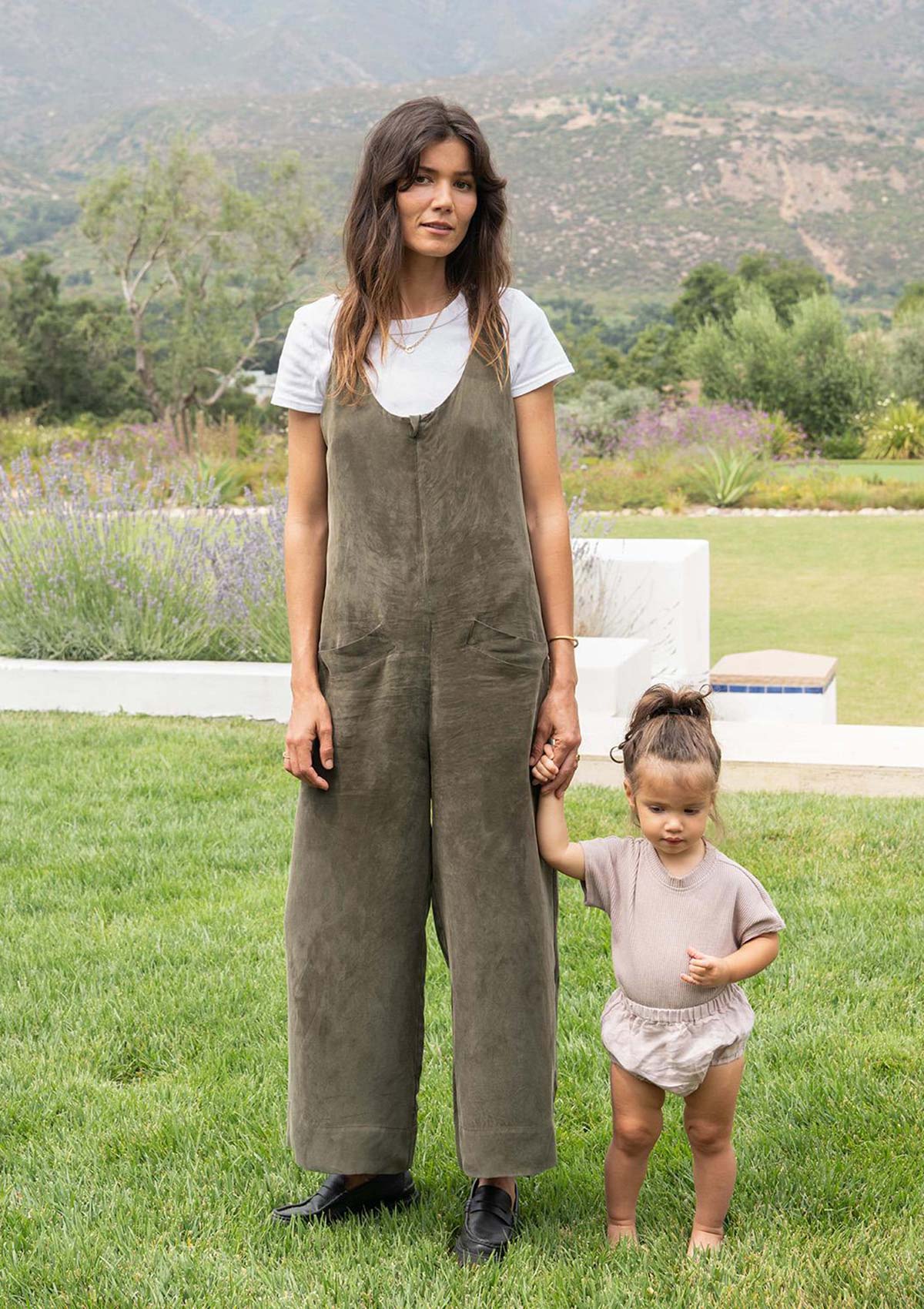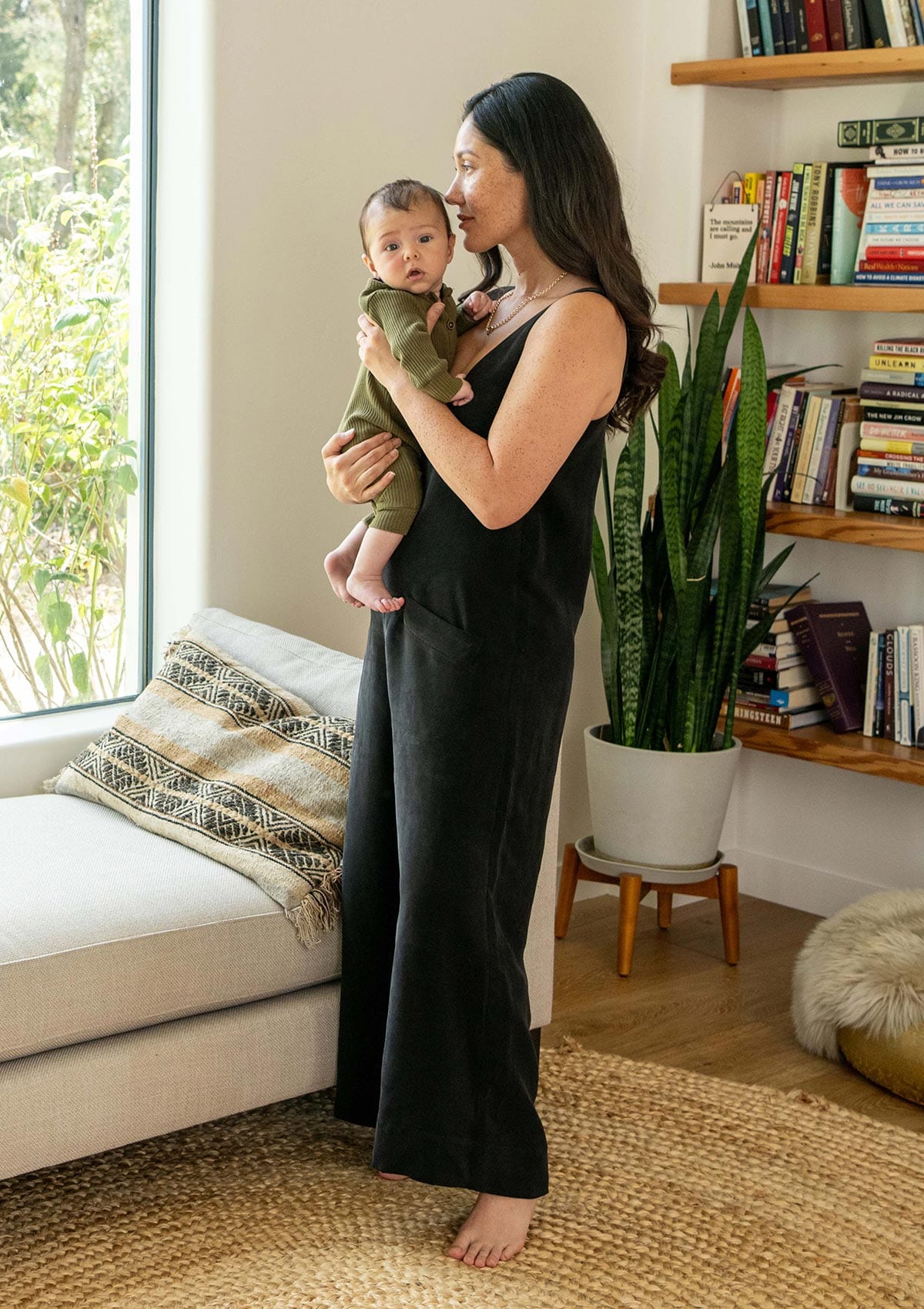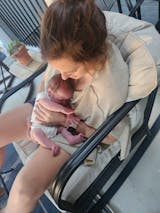
Doing This 1 Thing Could Make All The Difference In Your Birth Story
“It is important to remember that people have goals other than simply emerging from childbirth unscathed. Safety during labor is the floor of what people deserve. What we should all really be aiming for is the ceiling: care that is not just safe, but also supportive and empowering.”
-Dr. Neel Shah, M.D.
If there was one thing you could do for your labor and birth experience that could help decrease your pain, improve your odds of avoiding unnecessary medical interventions, lead to better postpartum success, and increase your satisfaction surrounding your birth story...would you do it? Yes? Us too (duh).
Enter: the doula.
More and more mamas are opting to hire doulas for support in their birth space, for exactly those reasons outlined above -- no matter where they plan to give birth. You may or may not know what a doula is (or even have heard the term before), so let’s get into the nitty-gritty of what a doula does (and doesn’t) do, how to go about finding a good one, and whether or not having one present at your birth is right for you.
What’s a doula and what do they do?
Basically, a doula is a non-medical professional birthworker. They provide continuous physical and emotional support in the form of:
- Pain management techniques and comfort measures (counterpressure, massage, rebozo sifting, mobility, breathwork, mantras, etc.)
- Labor and birthing positions (Miles Circuit, Spinning Babies, birthing tubs/balls/stool/bars, etc.)
- Advocacy/intermediary in birth setting (work with docs/midwives/nurses to create a safe and comfortable space, remind you of your birth plan, explain terminology or procedures, navigate your options, etc.)
- Partner support
Doulas don’t do anything in the medical field, such as:
- Administer meds
- Do cervical checks
- Interpret charts or results
- Diagnose conditions
- Give medical advice or make decisions for you (they CAN help you ask the right questions when your provider makes a recommendation, give you evidence-based info, and help you understand your options)
A doula also provides prenatal support, demystifying the labor and delivery process and helping you feel more empowered and active in your birth. They can help you create a birth plan, discuss wishes/concerns/fears, and even give you tips on getting yourself and baby in optimal shape for the big day (exercises to encourage a head-down babe and an open pelvis, recommendations for chiropractors/massage therapists/acupuncturists, etc.)
Mama Pro Tip → A good doula should never try to replace your partner or co-parent, if they are hoping to be involved and supportive during labor. Instead, doulas can help non-birthing parents to be more effective coaches and can give them relaxation tools and support (birth can be hard on a partner as well...they don’t like seeing you in pain, mama!)
Unlike doctors, midwives, and nurses, there’s no legal or universal training requirement for doulas, but most have gone through education and certification programs. Training may include in-person classes, hands-on experience, supplementary reading, and/or written exams. The largest certification program is called DONA International, but there are many others, all with variations in their philosophies and curriculum. Some doulas choose to not certify due to restrictions in scope of practice or personal preference; it’s up to you what qualifications and experience you’d like your doula to have.

Does a doula really make that big a difference?
In a word? Yes.
Studies have shown that labor support from a doula can mean:
- Decrease in use of pain meds
- Decrease in inductions/Pitocin use
- Lower odds of unplanned Cesarean (aka belly birth)
- Shorter labor
- Decrease in use of forceps/vacuum assistance in vaginal birth
- Better vital signs in newborn immediately after birth
- More likely to successfully breastfeed
- Increased satisfaction in overall birth experience for mama and partner
That last bullet point is especially significant, because the satisfaction increased even if the birth didn’t go according to plan. That’s pretty incredible, and may mean that using a doula also decreases the likelihood of mamas developing perinatal mood disorders like PPD.
I’m planning a belly birth; why do I need a doula?
This one is a little tricky, because a LOT depends on your specific OB, the anesthesiologist, and hospital policies. Many providers will allow doulas in the operating room to support mama and partner, while others will not permit any non-hospital personnel to be present. That being said, even if a doula can’t physically be in the OR, there are still benefits to working with one. They can help you prepare in the weeks leading up to birth (planning a family-centered Caesarean, making sure you are equipped for postpartum recovery, etc.) and they can also be helpful in pre- and post-op by taking notes on medical information, transporting your belongings to your recovery room, and providing loving touch. I attended the belly birth of a lovely mama once, and she told me afterwards that the gentle foot rub I gave her as her epidural was wearing off was incredibly restorative...to body and to soul!
My nurse will be in the room when my doc/midwife isn’t; why do I need a doula?
Firstly, we love nurses...they know a ridiculous amount of information, they’ve gone through just as much (sometimes more) training as doctors, and they sneak us extra popsicles. They rock. BUT they do still have other patients they’ll need to go see, and they are ultimately beholden to the hospital administrator and the facility they work for. A doula’s first and only responsibility is to YOU. That doesn’t mean they should butt heads with the medical staff (quite the opposite, which we’ll go over in a sec), but it does mean that you’re the only person they’re ultimately concerned about caring for. Nurses will also most likely be occupied with the physical interactions they have to have (and some of them may be unpleasant, like placing an IV), so there’s precious little time for emotional support or continuous pain mitigation. That’s where your doula comes in.
My spouse/mom/BFF is gonna be with me for the birth...why do I need a doula?
Having your partner or a loved one there for labor and birth can be wonderful, and can absolutely provide emotional support. However, they will likely be going through their own emotional trajectory and need support themselves. They also can’t provide the evidence-based knowledge and hands-on experience that a doula can when it comes to interfacing with other birthworkers and helping you advocate for yourself as needed. Doulas not only improve outcomes and satisfaction with mamas...partners also report feeling more positive about the experience when a doula was involved.
For more info on the statistics of having a doula present at your birth, check this out.
What does a doula cost?
Fees vary a LOT depending on a bunch of factors including experience level and your location; hiring a doula will probably run you anywhere from $500 to $3500. That may give you sticker shock, but consider that in addition to...
- 1-3 prenatal visits
- Continuous uninterrupted support during labor and birth
- 1-2 postpartum visits
- Unlimited phone/text message/email support before and after the birth
...you’ll also be more likely to have improved outcomes and be happier about your experience. Think about it this way: the more interventions you end up having in a hospital birth, the higher your final bill is -- and your insurance probably won’t cover it all. A doula can lower the odds of those interventions (if that’s your personal goal for your birth plan), so hiring one may actually save you money!
Speaking of insurance, unfortunately most insurance providers don’t cover doula services...although some states are rolling out coverage via Medicaid programs. You may be able to use HSA or FSA funds to pay for a doula’s fee, or see if your hospital has a volunteer doula program. If finances are a concern you can seek out a doula who will offer sliding scales or a discount. Sometimes newly trained doulas hoping to complete their certification requirements will attend births for lower or no fees as well...point is, there are options if you want them!
OK, you’ve convinced me...so how do I find a doula?
If you can, start your search around your 5th month of pregnancy so you have time to find a great match. Word-of-mouth is a great way to narrow down potential candidates, and you can check sites like dona.org, cappa.net, and other parenting organizations or forums for doulas in your area. Once you’ve chosen three or so that you’d like to interview, make a list of questions and criteria, such as:
- Where did you receive your training? Are you certified?
- What is your philosophy around pregnancy and birth?
- How many births have you attended?
- What services do you provide and are there additional costs?
- Do you work with a back-up doula, and if so, what are their credentials?
- What is your scope of practice?
- Do you share anything about your clients on social media?
- What do you think I should know before I give birth?
- What was the most challenging birth you’ve attended?
- Are you comfortable attending a home birth/hospital birth/birth center birth?
Beyond the specific interview questions, ask yourself how your personalities mesh. Do you want a peppy cheerleader type doula or more of a “tough love” doula? How do you feel when they’re explaining the birth process or their personal experiences to you?
Mama Pro Tip → Pay special attention to whether your prospective doula’s views on childbirth fit with your wishes...for example, if you’re planning an epidural but your doula candidate seems dismissive or critical of medical pain management, they probably aren’t a good fit. Remember, the doula’s job is to provide labor support to mama...no matter what kind of birth the mama wants to have!
Above all, trust your gut...birth is momentous and intimate, and you need to feel 100% comfortable with the person you’re inviting into that space!
So when DON’T you need a doula?
Well, if you can’t tell by now we’re pretty pro-doula -- mostly because we’re very pro-MAMA! But it really does come down to personality and preference at the end of the day. If you would feel more stressed with another person around in a high-stakes situation, or you’re confident in the choices your healthcare provider has made so far and you don’t feel the need for advocacy in your birth space, or you just plain don’t want one...all those are perfectly good reasons to skip it.
Bottom line? While hiring a doula is never a 100% guarantee of a certain birth outcome, they can increase the likelihood of you getting the birth that you want (and, more importantly, the likelihood of you being happier with your birth story no matter how it unfolds)! Our take: 100% worth it.
Note about postpartum doulas:
While your labor doula will typically see you once or twice after you give birth to check in and help you process your birth story, you may also want to look into a postpartum doula. These types are trained to help new parents cope with newborn care: bathing, diapering, nursing, sleeping, and more. Their primary jobs are: to provide you with the tools, information, and confidence to care for your baby, and to support you in your fourth trimester as you recover from childbirth.

































